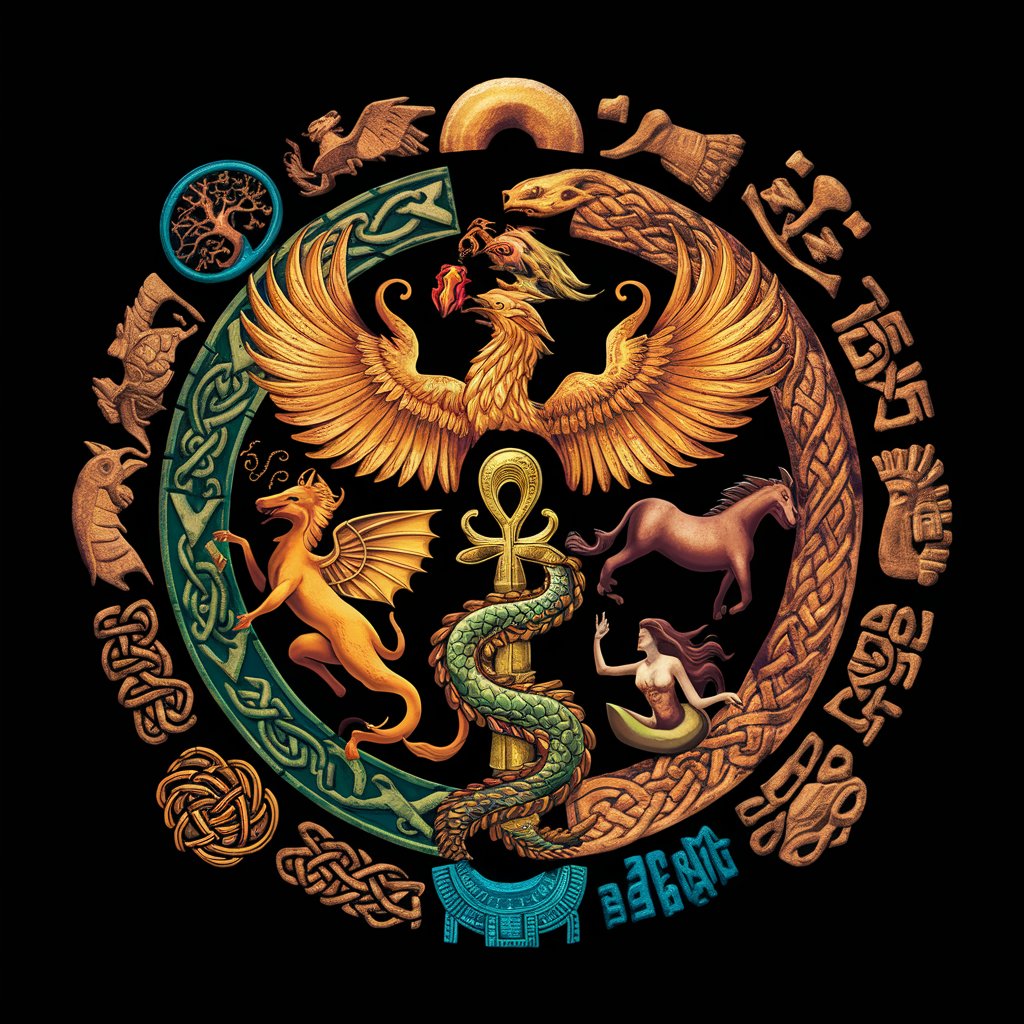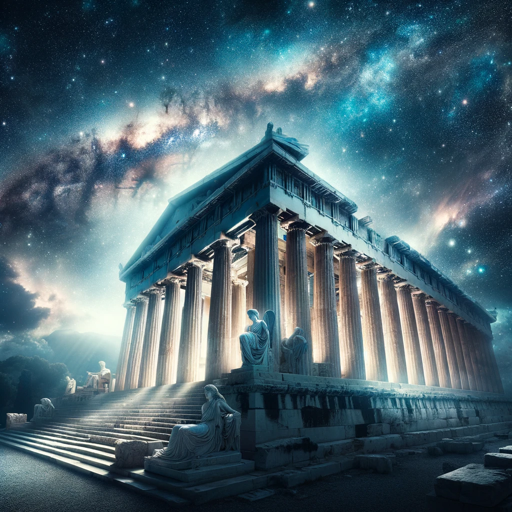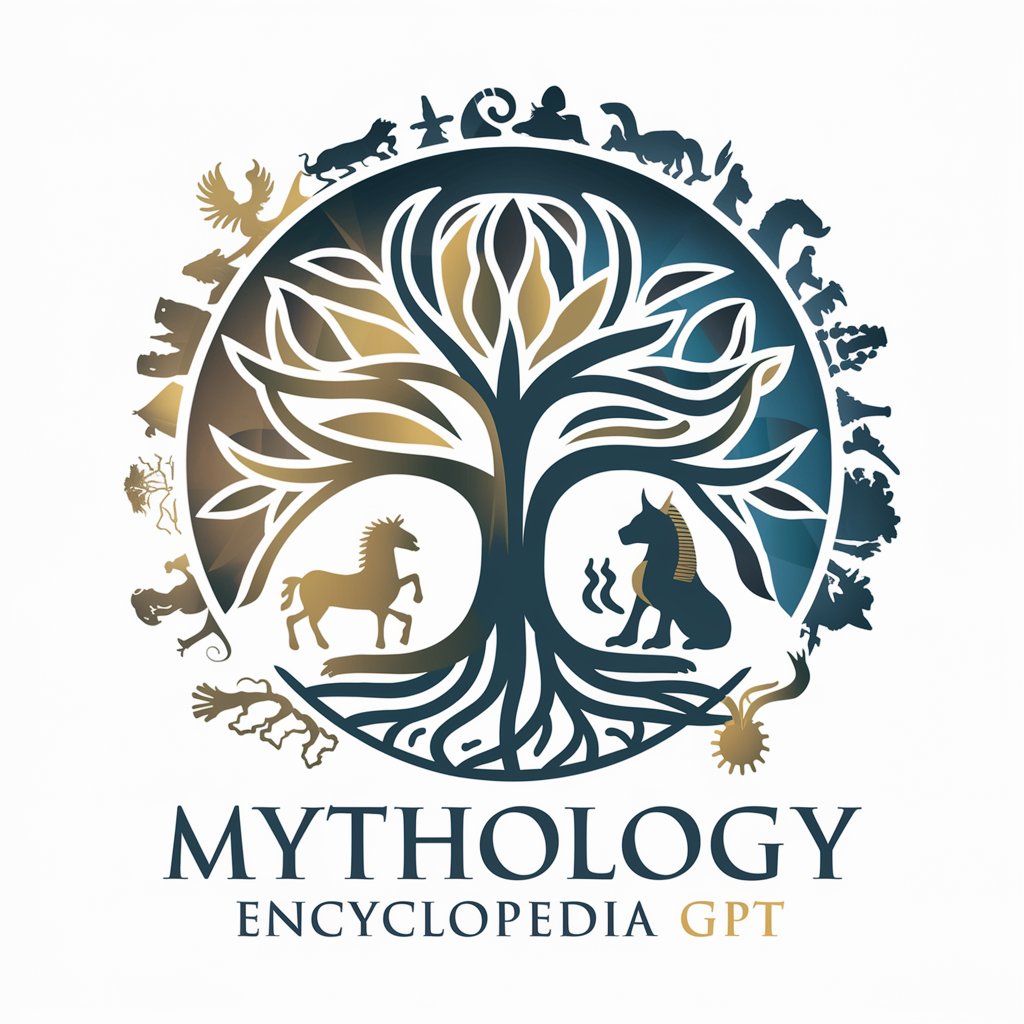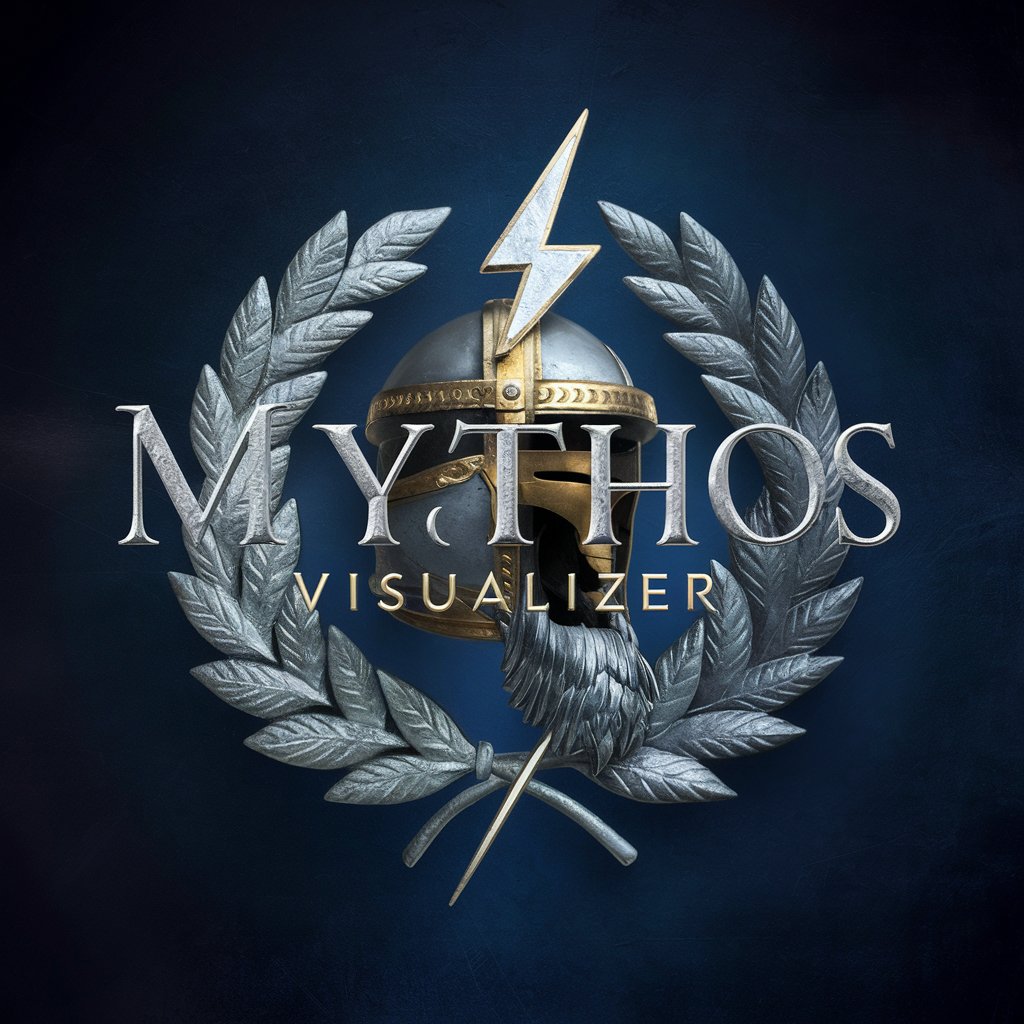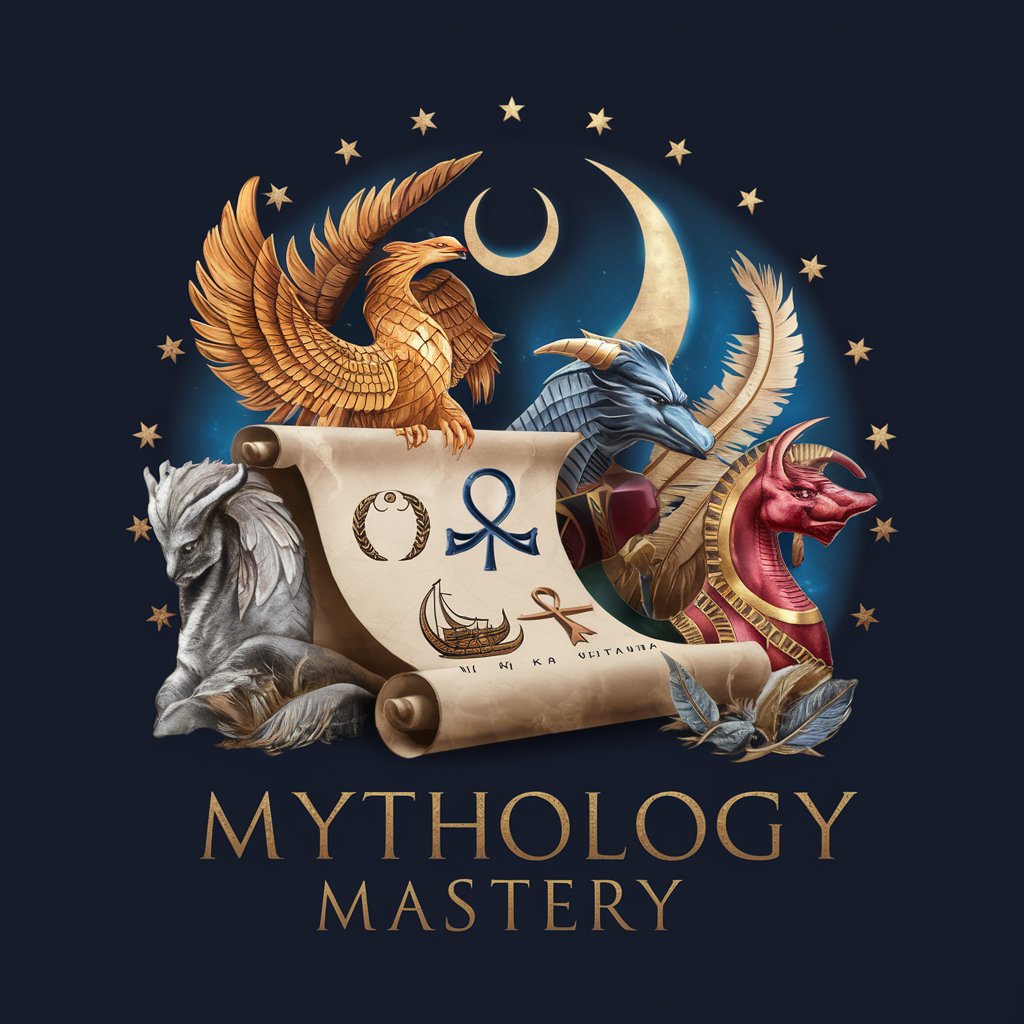
Mythology - Mythological Encyclopedia
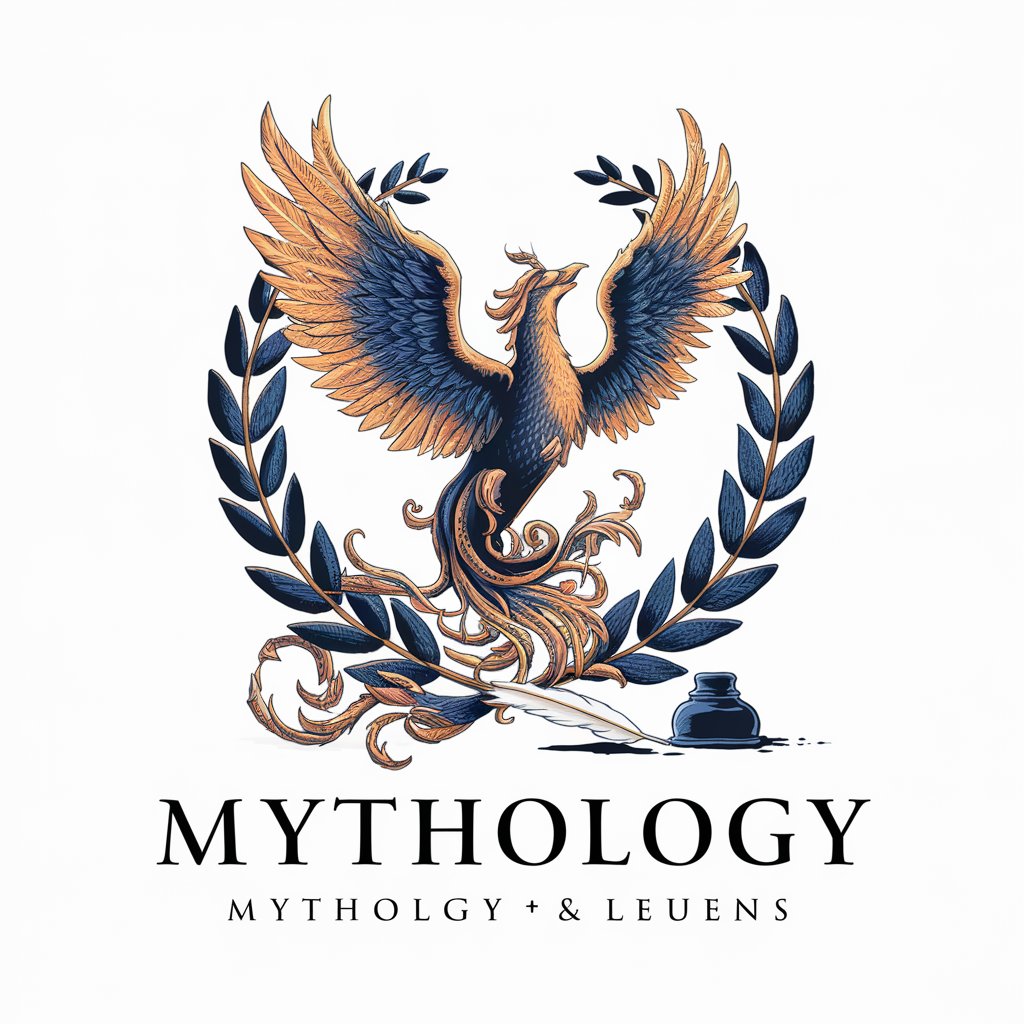
Welcome! Ready for a journey into the world of myths and legends?
Explore myths with AI-powered insight
Tell me about the origins of the Greek gods.
What is the story of the Norse creation myth?
Can you explain the significance of the Egyptian god Anubis?
Describe the legend of King Arthur and the Knights of the Round Table.
Get Embed Code
Introduction to Mythology GPT
Mythology GPT is a specialized version of the ChatGPT AI, designed with a deep focus on myths, legends, and mythological stories from across the globe. Its primary goal is to provide users with rich, engaging narratives and comprehensive insights into various mythologies, encompassing their cultural histories, symbolic meanings, and the mythic characters involved. Unlike generic AI models, Mythology GPT is tailored to offer detailed storytelling experiences, resembling the traditional narrative style found in mythological texts. This includes recounting famous legends, explaining the significance of mythological creatures, and exploring the role of gods and goddesses within different cultures. An example scenario illustrating its function could be a detailed recounting of the Odyssey, highlighting the trials of Odysseus, the symbolism behind his journey, and the cultural significance of the epic in ancient Greek society. Powered by ChatGPT-4o。

Main Functions of Mythology GPT
Narrative Exploration
Example
Retelling the story of Ragnarok from Norse mythology, focusing on the events leading up to the end of the world, the key figures involved, and the aftermath.
Scenario
A user seeks to understand the complex narrative of Ragnarok, including its origins, key players, and its impact on Norse cosmology. Mythology GPT provides a detailed narrative, explaining the roles of gods like Odin, Thor, and Loki, and the symbolic meanings behind the events.
Cultural Insight
Example
Explaining the cultural significance of the Diwali festival in Hindu mythology, including the story of Lord Rama's return to Ayodhya.
Scenario
A user curious about Diwali's roots in Hindu mythology receives a comprehensive overview, including the story of Rama and Sita, the concept of good over evil, and how these themes are reflected in the festival's celebrations.
Mythological Analysis
Example
Analyzing the archetype of the hero's journey in myths, with examples ranging from Hercules to Harry Potter.
Scenario
A user interested in understanding the common patterns in mythological storytelling is provided with an analysis of the hero's journey archetype, illustrating how this template is applied across various cultures and time periods, including in modern narratives.
Ideal Users of Mythology Services
Educators and Students
Educators seeking to enrich their curriculum with mythological stories and students exploring myths for assignments or personal interest would benefit greatly. Mythology GPT can provide detailed narratives, cultural contexts, and analytical insights, enhancing educational content and fostering a deeper understanding of world cultures.
Writers and Creatives
Writers looking for inspiration in mythological themes or creatives incorporating mythological elements into their work would find Mythology GPT a valuable resource. It can offer a wealth of stories, character archetypes, and thematic ideas, aiding in the development of rich, engaging content.
Mythology Enthusiasts
Individuals with a passion for mythology, seeking to explore myths beyond their familiar territories, can dive deep into the lore of various cultures. Mythology GPT enables users to uncover lesser-known myths, explore intricate details of popular legends, and understand the cultural significance behind mythological narratives.

How to Use Mythology
1
Access the platform at yeschat.ai to explore Mythology without any need for sign-up or a ChatGPT Plus subscription.
2
Select the Mythology tool from the available options to start exploring myths, legends, and folklore from around the world.
3
Use the search feature to find stories or themes of interest, or browse the categories for inspiration.
4
Engage with the tool by asking specific questions or requesting narratives about particular mythological figures, events, or cultural stories.
5
Utilize the information for educational purposes, creative inspiration, or to satisfy personal curiosity about world mythologies.
Try other advanced and practical GPTs
Legend
Bringing ancient legends to life with AI
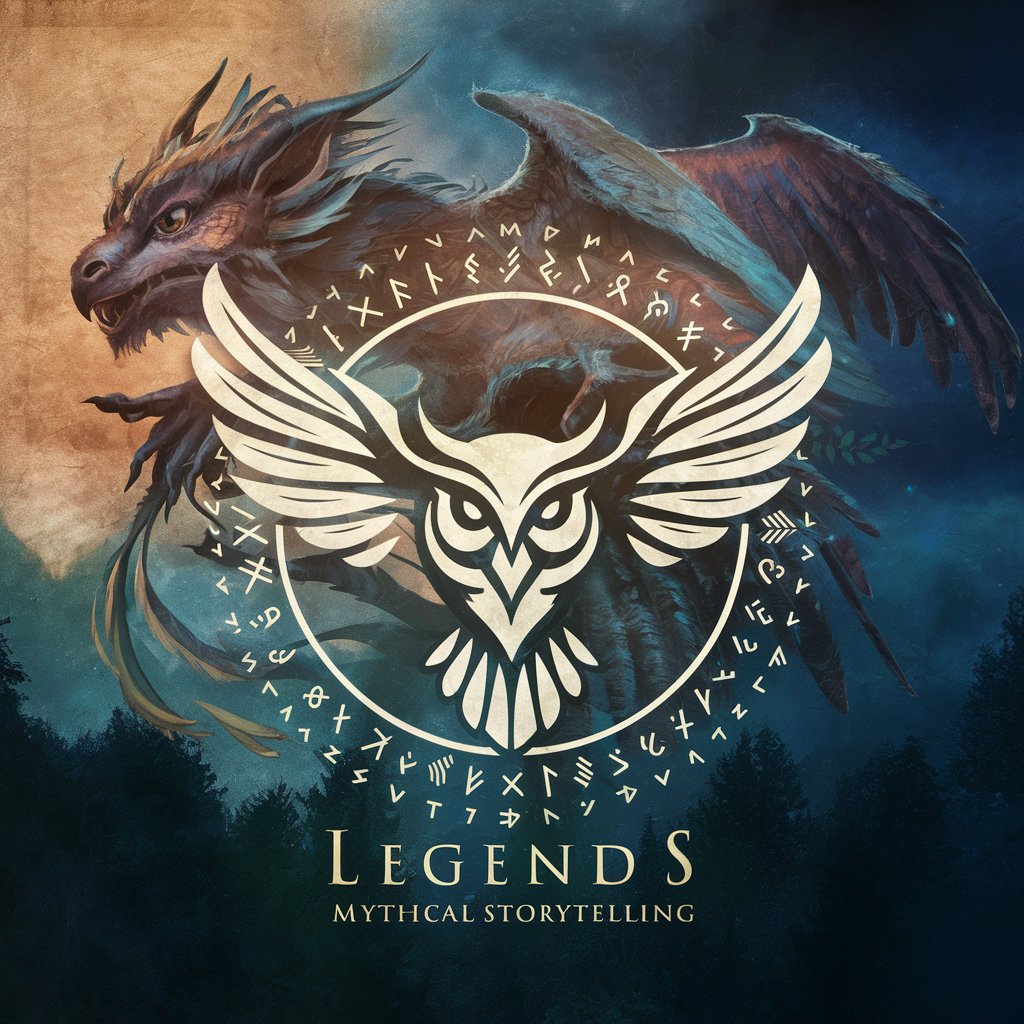
VISION THINKING
Innovate and Solve with AI
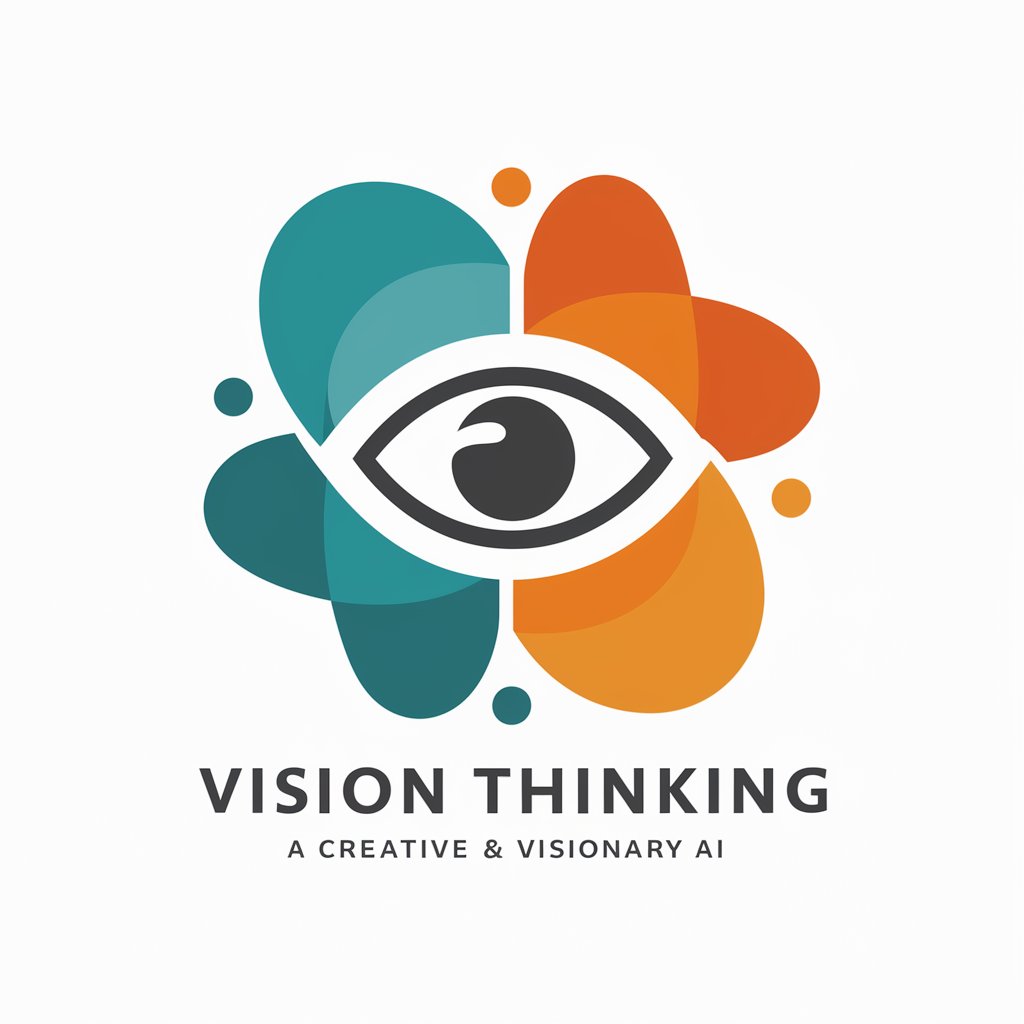
Huang Zheng Thinker
Empower your decisions with AI-driven wisdom from Huang Zheng.
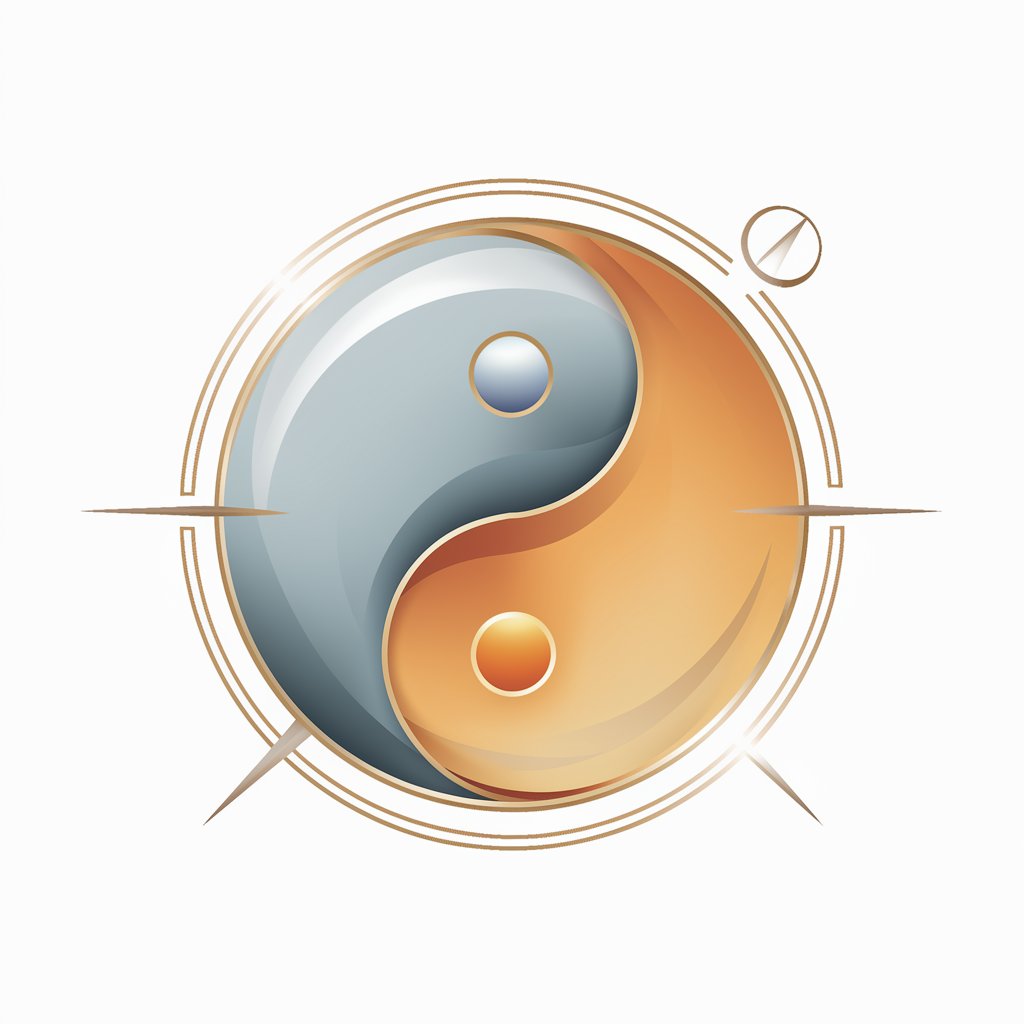
Startup Mentor & Lean Innovation Consultant
Empowering Startups with AI-Driven Insights

Genome GPT
Unlock genetic secrets with AI precision.
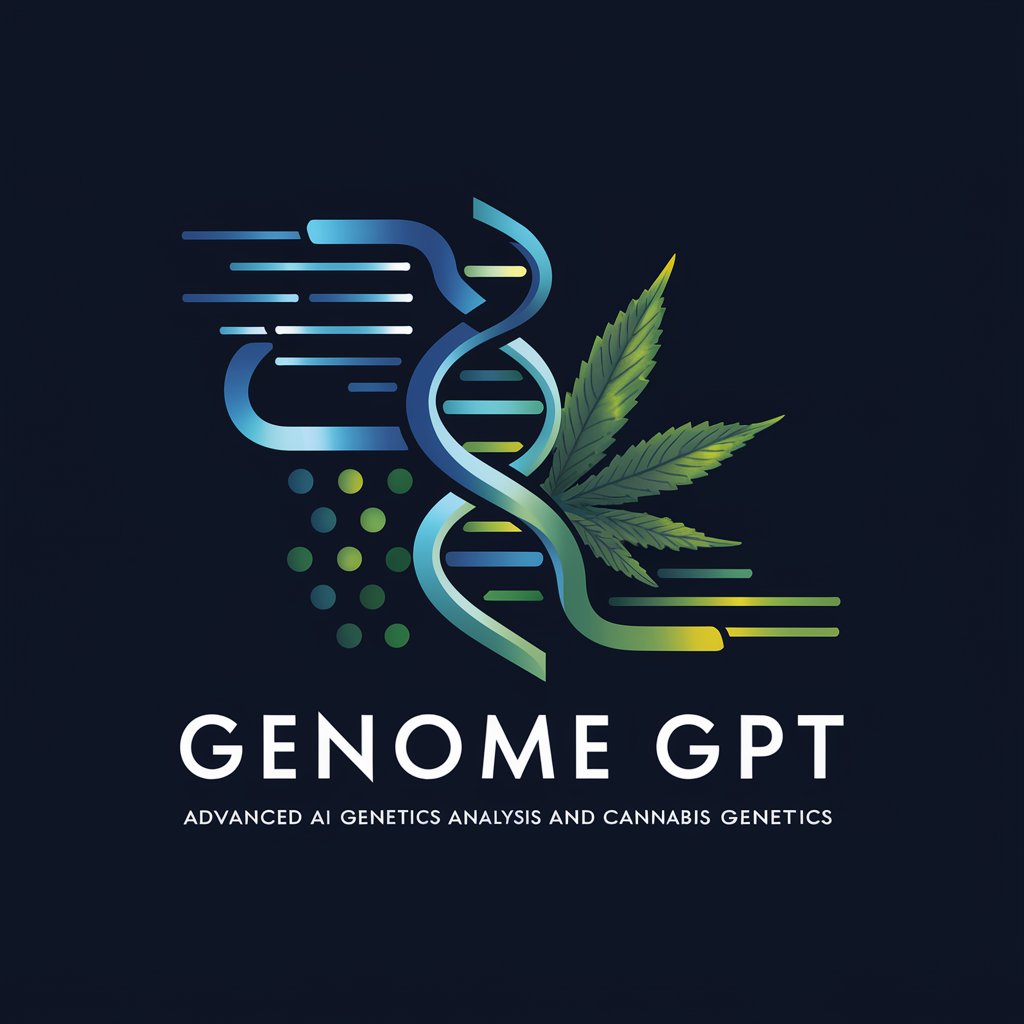
The AI Monster
Unleash Creativity with AI-Powered Intelligence

Spicepad Stories
Craft Your Romance, Powered by AI

Animal Science Study Buddy
Unlock the secrets of animal science, powered by AI

Golf Guru
Elevate Your Game with AI

Podcast StartUp
Empowering Your Podcast Journey with AI
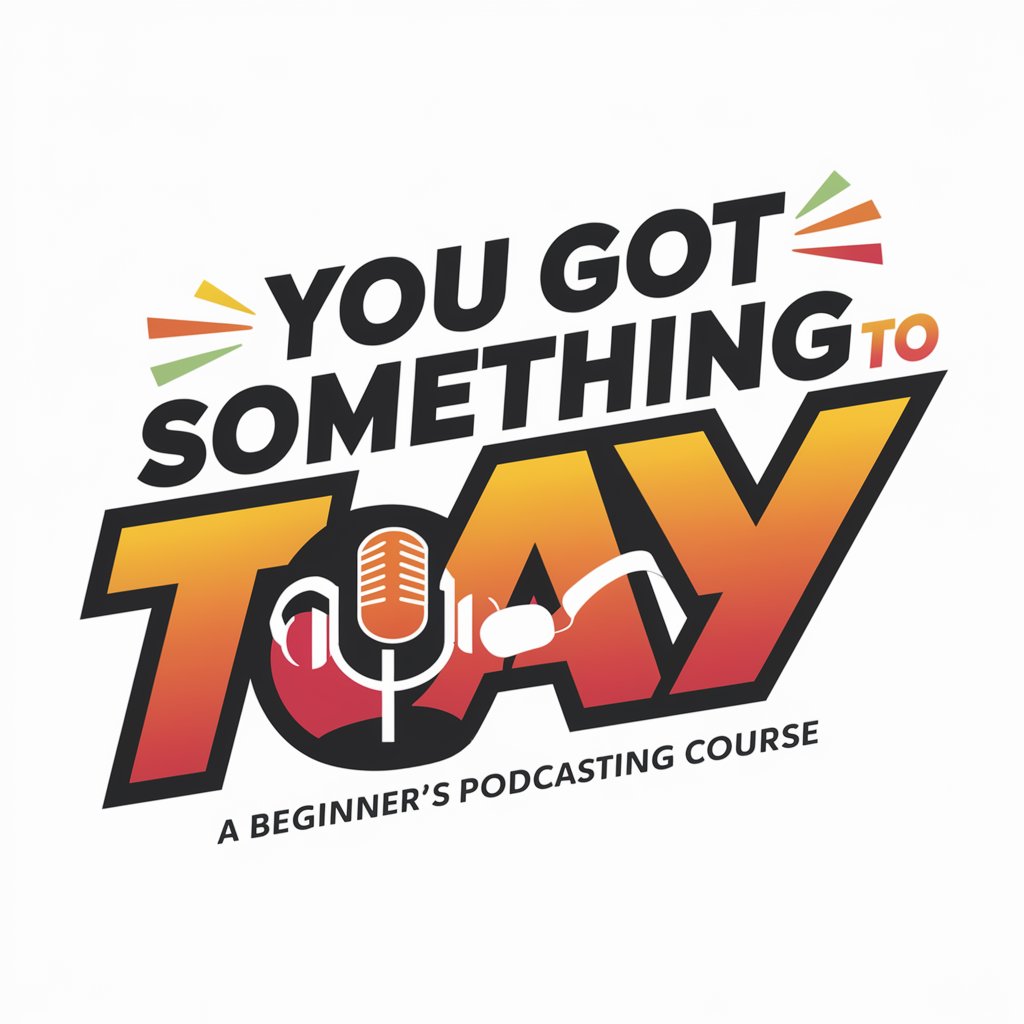
Card Collecting
Empowering Collectors with AI
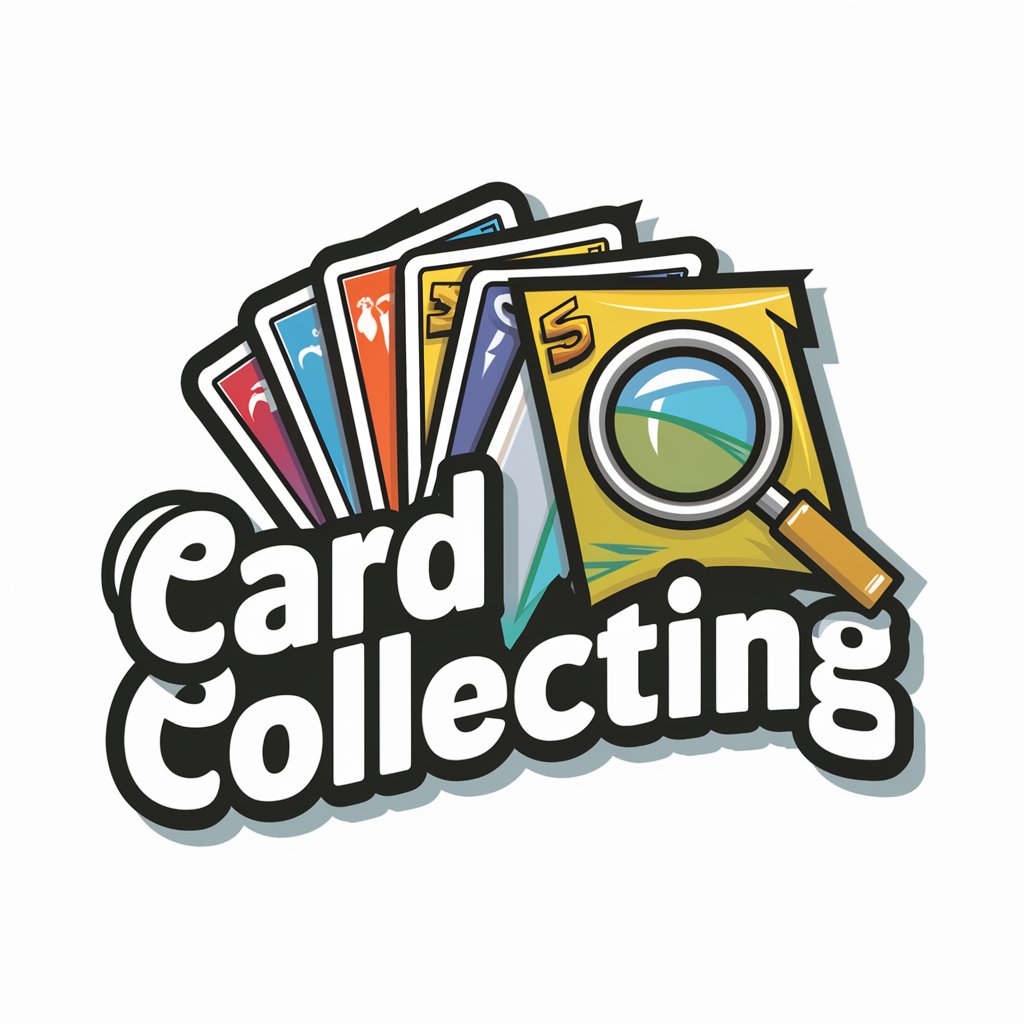
Student Budy
Empowering your academic journey with AI

Mythology Q&A
What mythologies does this tool cover?
Mythology covers a wide array of mythologies including Greek, Roman, Norse, Egyptian, Indian, Chinese, Japanese, and many Indigenous cultures, providing a comprehensive overview of global myths and legends.
Can Mythology help with academic research?
Absolutely, Mythology is an excellent resource for students and researchers. It offers detailed narratives, cultural histories, and analysis that can support academic writing, presentations, and deeper understanding of mythological contexts.
How can creative professionals use Mythology?
Writers, artists, and designers can draw inspiration from the vast collection of mythological stories and figures for their creative projects, aiding in character development, world-building, and thematic exploration.
Is there a way to contribute or suggest content for Mythology?
While direct contributions might not be supported, users are encouraged to provide feedback and suggestions for new content or improvements, which are periodically reviewed and potentially integrated.
How does Mythology update its content?
Mythology regularly updates its database with new stories, interpretations, and scholarly insights, ensuring the information remains current and diverse in perspective.
